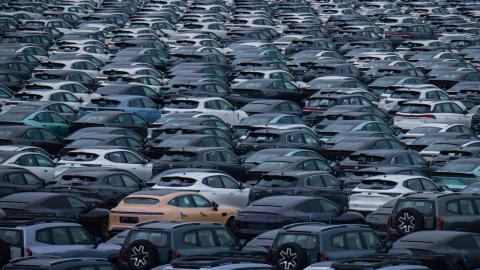In case you missed it, your choice on whether or not to buy an electric vehicle has already been decided by the Biden administration. In March, the Environmental Protection Agency (EPA) finalized two rules aimed at phasing out gas-powered light-, medium- and heavy-duty vehicles. Disguised as an emission reduction measure, the rules intentionally set standards so high that automotive companies effectively have no choice but to reduce the production of gasoline and diesel engines. The administration aims for electric cars to constitute more than 50% of all vehicle sales by 2032 and phase in electric heavy-duty vehicles between 2027 and 2032.
I consistently remind lawmakers that our energy future needs to balance environmental considerations and economic realities. Reducing greenhouse gases and particulate emissions is undoubtedly important. However, it’s equally crucial to recognize that the success of the American economy hinges on the uninterrupted flow of reliable, affordable, and accessible energy – the very essence of energy security.
Growing up in Ohio during the Arab Oil Embargo, many remember waiting in long lines to purchase gasoline. People would ask, “Even or odd?” to determine whether one could wait in line on a given day. Since 1972, America has been dedicated to achieving energy independence, protecting us from volatile regimes worldwide.
It’s imperative to understand that energy transitions occur over decades, marked by gradual shifts, advancements, and setbacks. This slow-paced nature is why government mandates imposed on a private-sector economy rarely succeed.
Unfortunately, Washington seems to ignore this lesson. The Biden administration is fixated on phasing out internal combustion engines in favor of Battery Electric Vehicles (BEVs). BEVs have gained popularity over the years, with options improving for daily commutes and home charging. I have owned one for nearly five years, and they are catching on with some early adopters, yet challenges remain.
Such a goal is not only unrealistic; it’s also perilous. While valid concerns about consumer accessibility, high purchase costs, and infrastructure requirements associated with greater EV adoption are surfacing, the U.S. must also consider its unpreparedness and China’s geopolitical advantage in possessing most raw materials and supply chains needed for batteries. In fact, neighboring Senators Mike Crapo (R-ID) and Joe Manchin (D-W.Va.) are leading the charge to strip funding for these rules, and Ohio lawmakers should follow suit.
According to Reuters, China commands a 95% dominance over the rare earth metals market - crucial for EV manufacturing. This dominance enables them to control prices and create instability through export controls. Our domestic supply chain already faces challenges. So, ceding more control of our automotive market by artificially inflating EV use will create unacceptable vulnerabilities and likely hamper us from meeting the goals set by the administration.
This concern extends beyond electric vehicles. China has seized the green tech market, and if we’re not cautious, America will trade one energy dependence for an even worse one. The challenge with the green transition is more than its unreadiness, though that’s reason enough to pause. The real danger for Ohio and the nation is that we are squandering America’s most significant strategic advantage due to an administration that misunderstands geopolitical power and influence.
Stringent and hastily implemented rules yield unintended consequences that harm our national economy. Earlier this year, Stellantis hinted at the need to lay off thousands of U.S. workers, including those in Ohio, citing “stricter car standards by the state of California.” Coupling a national tailpipe emissions rule with these state rules will likely eliminate key automotive industry jobs and shift resources overseas.
These issues will almost certainly impact Ohio’s economy. Ohio ranks #1 in the nation for engine production and #2 in transmission production. The final rule stands to jeopardize over 100,000 jobs within the state.
To address these concerns, I, alongside other national security stakeholders, sent a letter to President Biden, asking him to reconsider plans to dramatically increase our EV dependence, safeguarding against complete reliance on China. Instead, we suggest enabling domestic production by streamlining the permitting process. This would establish a more robust regulatory system, encourage new investments, and allow the nation to bolster its production capacity before exporting crucial resources.
There is a viable path to achieve net zero emissions, but the glide slope must be carefully analyzed and adjusted to safeguard America’s economic and national security. In this context, rescinding the EPA rule is crucial. Until we can strengthen our system to counter China’s growing influence and power in the EV world, we must proceed cautiously before our national security is compromised.



















